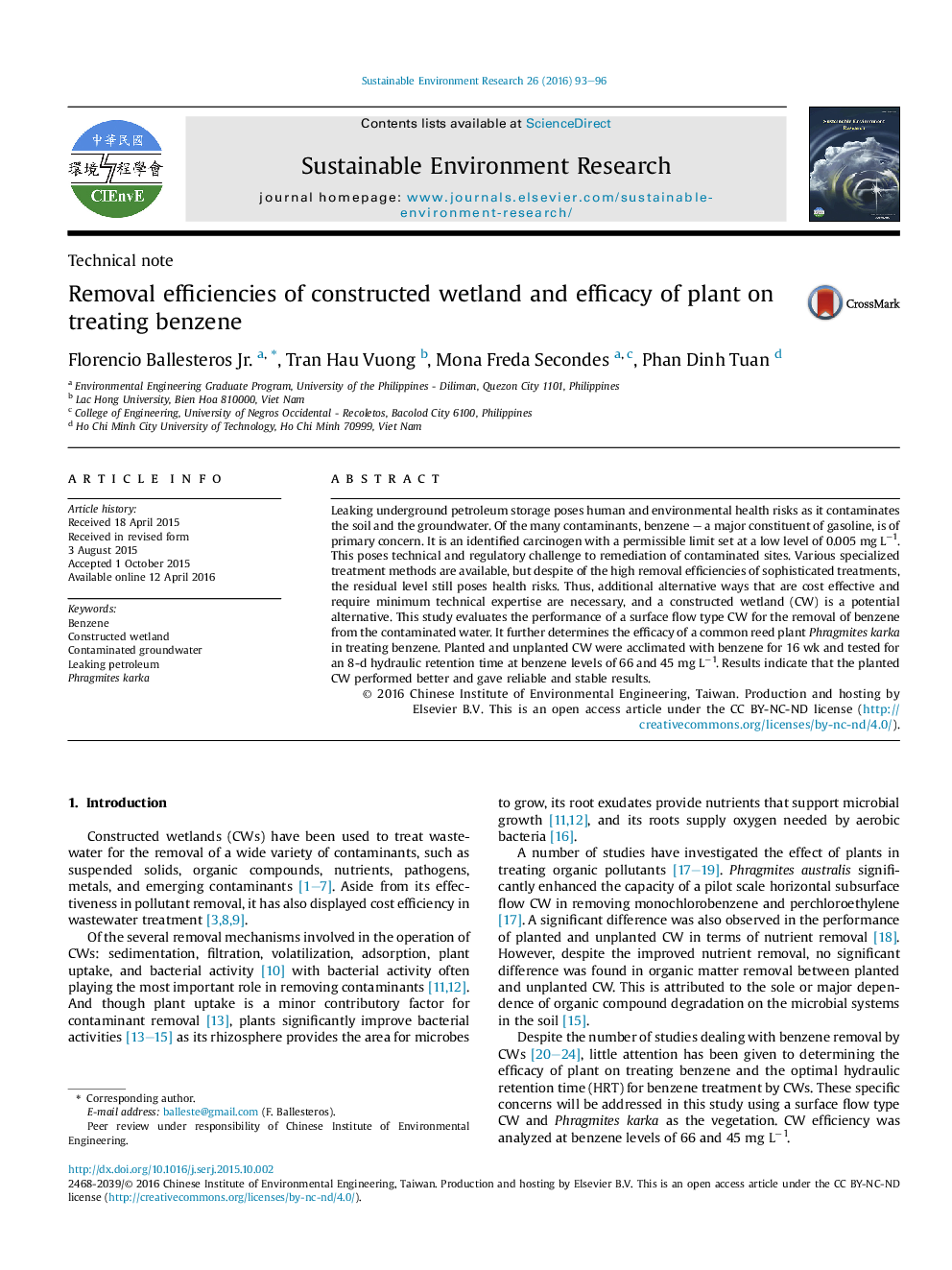| Article ID | Journal | Published Year | Pages | File Type |
|---|---|---|---|---|
| 4435395 | Sustainable Environment Research | 2016 | 4 Pages |
Leaking underground petroleum storage poses human and environmental health risks as it contaminates the soil and the groundwater. Of the many contaminants, benzene – a major constituent of gasoline, is of primary concern. It is an identified carcinogen with a permissible limit set at a low level of 0.005 mg L−1. This poses technical and regulatory challenge to remediation of contaminated sites. Various specialized treatment methods are available, but despite of the high removal efficiencies of sophisticated treatments, the residual level still poses health risks. Thus, additional alternative ways that are cost effective and require minimum technical expertise are necessary, and a constructed wetland (CW) is a potential alternative. This study evaluates the performance of a surface flow type CW for the removal of benzene from the contaminated water. It further determines the efficacy of a common reed plant Phragmites karka in treating benzene. Planted and unplanted CW were acclimated with benzene for 16 wk and tested for an 8-d hydraulic retention time at benzene levels of 66 and 45 mg L−1. Results indicate that the planted CW performed better and gave reliable and stable results.
